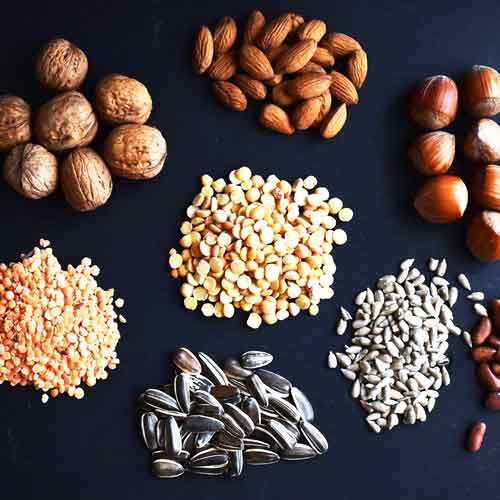
People often rely on sources other than their daily intake of food to supplement themselves with some necessary micronutrients. These micronutrients often prevent the onset of diseases, curb deficiencies, and also build immunity. Usually, the food we consume does not contain an adequate amount of these nutrients, so we turn to supplements – which can be of two types; synthetic or food-based.
Food-based supplements contain carefully measured amounts of food concentrates that provide regular levels of active nutrients to support good health. They contain bioactive ingredients such as vitamins, minerals, antioxidants, or probiotics. These supplements provide targeted nutrition – all the bioactive compounds work synergistically to provide optimum nutrition to the body.
These supplements are shown to provide a higher bioavailability – which is the property of the required nutrient to get absorbed and travel through the bloodstream to have an active effect.
Food-based supplements go through the process of removal of water from various food items such as nuts, seeds, grains, herbs, and fruit. They include some co-nutrients and enzymes that better facilitate the process of the taking up of the required supplements by the body.
Research conducted shows that food-based supplements turn out to be healthier and more effective in the long run due to a property known as food synergy. What this means is that the bioactive compounds (such as phytochemicals) of a particular food item combine and react with themselves and the micronutrients so that they can be obtained in their most enhanced and nutritious form.
This is achieved due to a chemical property known as chelation – which is the process by which a mineral might combine with another molecule, such as an amino acid, to form a whole, more absorbable constituent.
The synthetic versions of supplements often lack the enzymes and co-enzymes required for them to be fully absorbed by the body.
Some studies show that the consumption of avocados greatly improves the efficacy in absorption and assimilation of vitamin A from sources such as carrots. Another study proved that phytochemicals obtained from the consumption of apples greatly enhanced the availability of antioxidants in the fruit.
When trying to establish a comparison between the natural and synthetic forms of vitamins, a study took up two different forms of the same vitamin – K1 and MK7, which are the synthetic and naturally available versions of vitamin K. An experiment was conducted where participants were told to consume either of these vitamins with breakfast or dinner for four weeks – they also had to keep in mind to not consume any vitamin K rich foods.
After the period of experimentation was over, close examination revealed that 20 microgram of the natural supplement – MK7 – was much more effective than a 100-microgram dose of the synthetic counterpart (K1).
Some foods that provide nutrition for the long run and can be consumed in the form of supplements include –
· Liver
· Bee Pollen and Honey
· Fruits and nuts
· Seeds and grains
It is essential to consult with a dietary professional before making the choice to start a supplementary regimen. It helps to compare potencies of different combinations of ingredients and also of different brands. You can also try and look for certain patented ingredients – these ingredients have undergone research and have produced not only safe but also quantifiable results.
It is also crucial to keep in mind to choose a brand that you trust. Bhookha Haathi provides a range of food-based, non-synthetic supplements that contain high amounts of bioactive ingredients. They are specially processed to satisfy particular dietary requirements and provide medical or health benefits. Its offerings are 100% natural compositions based on dried fruits, nuts, herbs, spices, seeds, grains, and honey, among other whole and natural ingredients.
Written by: Jahnabee Adhikari
Jahnabee is a part-time blogger, full-time dog lover. She believes that writing actually possesses the potential to change the world. She can be often found fantasizing about poetry or buried nose-deep in a Sudha Murthy novel.


